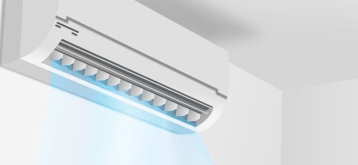A power surge is a surge of electrical power that is higher than usual. It can affect the performance of your electrical devices, gradually damage them, or even completely destroy them if the surge is big enough.
Power surge causes
Power surges have four main causes:
1. Electrical overload
Electrical overload is often caused by using too many devices on a single plug, like when you daisy chain power boards. Or it could be using too many high power devices on a single power board, like a hairdryer, steam iron, and kettle all working at the same time. When this happens, the circuit can receive a massive unexpected current.
2. Faulty wiring
if wiring is damaged or exposed, its electrical resistance is reduced, and any conductive material that it comes into contact with can cause a big electricity spike. This can be difficult to diagnose, but faulty wiring can leave burn marks, a burning smell, a buzzing sound, or your circuit breaker regularly tripping. If this is the case, call an electrician immediately.
It’s also worth mentioning that electrical systems can degrade over time, so it’s worth having an experienced electrician inspect your system for potential problems before they become much more expensive.
3. Lightning
A typical lightning strike is about 300 million volts1, and if that strikes your local power line, you might experience a massive surge of electricity in your home, which can fry your expensive devices.
4. Power outage
When power is restored after an outage, the system can experience a big jump in voltage, which might find its way into your home.
5. Transformer damage
If your local electrical transformer is damaged, say by a lightning strike or by a possum living inside it, a big power surge can be caused.
How do you know if you have a power surge?
These are the most common signs that there has been a power surge in your home:
- Your lights are flickering, buzzing, or temporarily dimming.
- Clocks have reset on electrical appliances, either flashing or showing the incorrect time.
- You may see discolouration or scorching around your power outlets. This may be accompanied by an electrical burning smell inside your home.
- There’s smoke coming from your power outlets.
- Your power outlets feel warm, or they are gently vibrating.
- Some of your electrical devices don’t work.
Do I need a surge protector?
Surges of electricity can damage or even completely destroy the electrical components of your devices. While you don’t need surge protection for every device, it’s highly recommended to have them for expensive items like televisions and computers.
Powerboards often have surge protectors built into them, so they’re an easy way to protect your devices from power spikes. Or you can have a “service entrance” surge protector installed before the main breaker of your house (installed by electricians, and common for apartment blocks and some modern homes), or a “whole house” surge protector that is installed inside your breaker unit.
Can a power surge damage a laptop?
Power surges can damage anything electrical that is plugged in. This includes laptops, computers, televisions, refrigerators, dishwashers, and every other expensive electrical device you own. That’s why getting a surge protector is so important. The last thing you want is for your Macbook to be fried when a massive bolt of lightning hits a power line.
References
- How Powerful Is Lightning?, National Weather Service
Suggested Articles

Can Good Air Conditioning Help You…
Struggling to get a good night’s sleep? Your air conditioner might just be the secret weapon you…
Read More
How to Store Cords: Safe and…
Messy cords aren’t just frustrating — they can also be unsafe. Tangled extension leads, power cords and chargers…
Read More
The Benefits of LED Lighting: Why…
The Benefits of LED Lighting: Why You Should Make the Switch When it comes to lighting your home or business,…
Read More